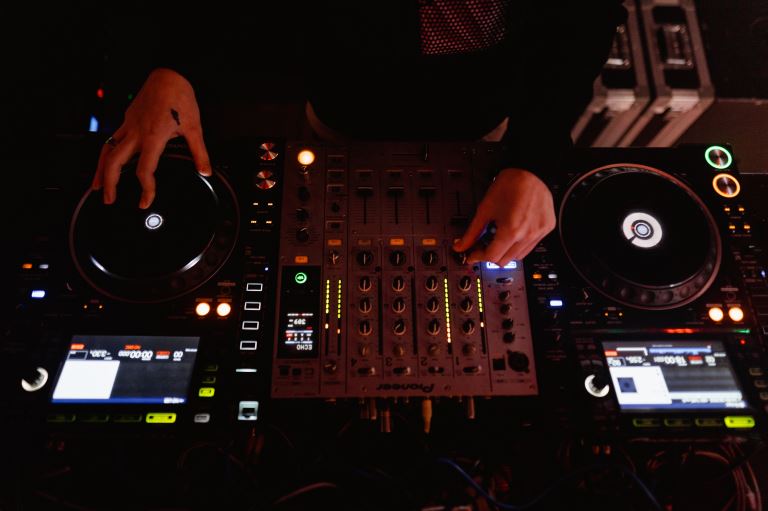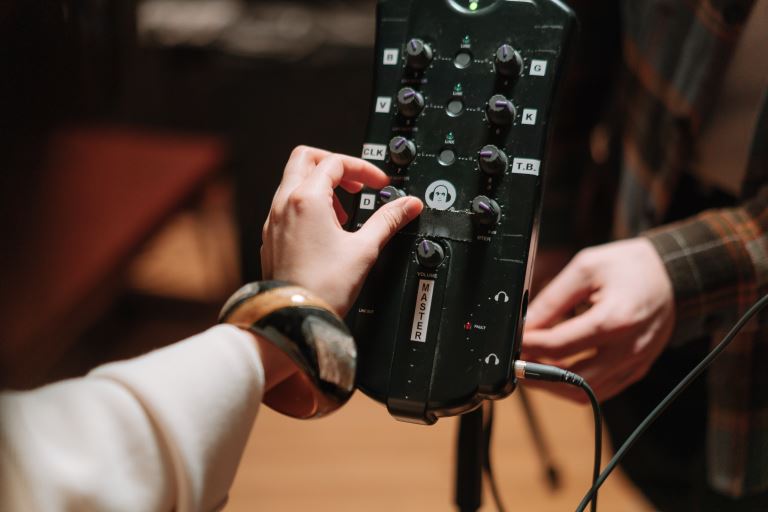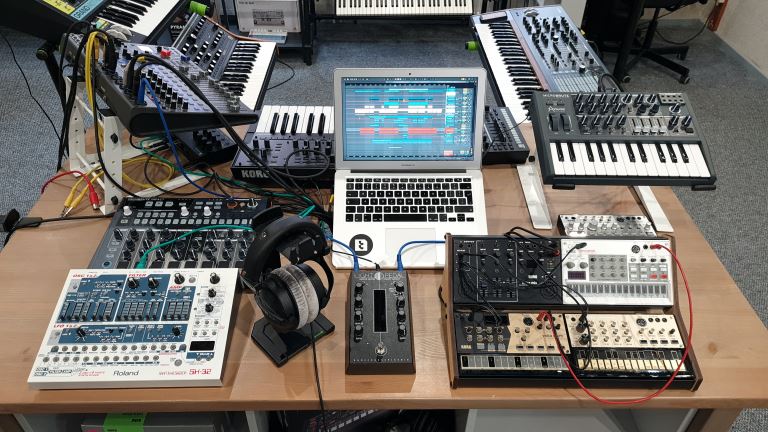
How Has Audio Engineering Changed Over the Years
pThere are several ways in which audio engineering has changed over the years shift from physical to digital media advancements in recording equipment increased use of computerbased software increased accessibility of audio engineering and advances i
The technology world keeps evolving, and audio engineering has not been left out. I have done my research and created an informative article to help you learn about how audio engineering has changed over the years.
There are several ways in which audio engineering has changed over the years; shift from physical to digital media, advancements in recording equipment, increased use of computer-based software, increased accessibility of audio engineering, and advances in artificial intelligence.
Read on to learn how audio engineering has changed over the years and its significance. On top of that, find out why you should hire an audio engineer.
How Has Audio Engineering Changed Over the Years
Audio engineering has evolved significantly, thanks to new technologies and techniques, from recording audio on physical media to the digital age of computers and digital audio workstations. The way you create and manipulate audio has undergone significant changes.
Today, audio engineering is an essential part of many industries, including music, film, television, and gaming, and it continues to evolve as new technologies are developed. Below are some ways in which audio engineering has changed over the years:
The shift from physical to digital media
In the early days of audio recording, audio was recorded on physical media such as wax cylinders, phonograph records, and tape. It was time-consuming and labor-intensive, and the audio quality was limited by the medium on which it was recorded. With the advent of digital audio, audio can now be recorded and manipulated using computers and digital audio workstations (DAWs), dramatically improving the speed, flexibility, and quality of audio recording and production.
Digital audio is stored in a digital format and can be easily edited and manipulated using the software. It is also more resistant to degradation and noise than physical media, resulting in higher-quality audio.
Advancements in recording equipment
Over the years, there have been many improvements in the equipment used for audio recording. For example, microphones have become more sensitive and able to capture a broader range of frequencies, and audio interfaces have become more powerful and efficient. These advancements have allowed audio engineers to capture and produce audio with greater clarity and detail.
The increased accessibility of audio engineering
Audio engineering has become more accessible, leading to the democratization of the field, with more people able to create and produce their audio content. With affordable software and equipment availability, anyone can get started in audio engineering, regardless of their level of experience or resources.
Tools have also been developed to automatically analyze and enhance audio signals, making it easier for engineers to produce high-quality audio. These tools can help audio engineers save time and effort by automating specific tasks, and they can also help to improve the quality of audio production.
The increased use of computer-based software
It has made it easier for audio engineers to work with audio and allowed for greater flexibility and creativity in the production process. With the proliferation of digital audio workstations and other audio software, audio engineers can easily record, edit, and mix audio using a computer. It has made the audio engineering process more efficient and for people to get started in the field.
Why You Need an Audio Engineer for Your Business
An audio engineer is a professional who specializes in the technical aspect of sound recording, mixing, and reproduction. They are responsible for capturing, manipulating, and enhancing the audio quality of various recordings, such as music, podcasts, movies, and TV shows. Here are the reasons why you need an audio engineer for your business.
To ensure high-quality audio.
They have the skills and knowledge to capture and enhance the audio quality of a recording. They can also troubleshoot problems with microphone placement, sound levels, and other technical issues to ensure that the final recording sounds clear and professional.
Additionally, they can help you achieve a specific sound or mood for your recording. For example, if you're recording a podcast, an audio engineer can help you create a warm, inviting sound that is easy to listen to. If you're recording music, they can help you achieve a specific style or genre of music by manipulating the sound in various ways.
To save time and money
Working with an audio engineer can save you time and effort. Instead of trying to figure out how to achieve the sound you want, they can help you get the desired results quickly and efficiently. This can be especially helpful if you're working on a tight deadline. However, it may seem like an additional expense, but it can save you money in the long run. They have the equipment and skills to produce high-quality audio, which can help you avoid costly mistakes and re-recordings. Ultimately, investing in an audio engineer can help you save time and money while creating a professional-grade recording.
To meet industry standards.
If you're planning to release your recording to the public, it's essential to ensure that it meets industry standards. An audio engineer can help you meet these standards by providing a balanced and mixed recording, saving you from problems when it comes time to distribute your recording.
What Are the Qualities That an Audio Engineer Should Possess?
By taking the time to research and interview potential audio engineers, you can find one who meets the best qualities and can help you achieve the best possible recording. Here are a few key characteristics and qualifications to look for when trying to identify a qualified audio engineer:
Education
A degree in audio engineering or a related field can help you find an audio engineer with a solid foundation in the technical and creative aspects of sound recording, mixing, and reproduction. However, it's important to note that a degree is not necessarily required to become an audio engineer. Some audio engineers may have learned their skills through hands-on experience, internships, or other types of training, but it's still essential.
Experience
An audio engineer who has worked on various projects and has experience in the specific type of recording you need is likely to have a deeper understanding of the technical and creative challenges involved. For instance, an audio engineer with experience recording live music will have different skills and knowledge than one who has primarily worked on voiceovers for commercials.
Equipment
A qualified audio engineer should have access to a range of professional-grade equipment, including microphones, recording, and sound processing software. They should also know how to use this equipment to get the best results. It might include understanding how to position microphones to capture the best sound, adjusting levels and EQ to achieve a desired sound, and using software to process and manipulate the audio.
Communication skills
An audio engineer needs to be able to communicate effectively with clients and other members of the recording team. They should clearly explain their process and listen to plus understand the client's specific needs and goals. These skills are essential to work collaboratively and achieving the best possible results.
Attention to detail
They need to have a keen ear for detail and be able to identify and fix any technical issues that may arise during the recording process. The issues could be troubleshooting problems with microphone placement, sound levels, or other technical issues to ensure the final recording sounds clear and professional. A qualified audio engineer should be able to pay close attention to the details of the recording process and make adjustments as needed to achieve the best possible results.
Conclusion
Undoubtedly, audio engineering will keep improving and growing as time goes on. There is a lot your business can benefit from, including getting the best services from qualified audio engineers. They can help you achieve a professional-grade recording that meets industry standards and sounds excellent. They have the skills, knowledge, and equipment to ensure that your recording sounds clear and in the best state. We can help you get that. Reach out to us for the best audio engineering services.








